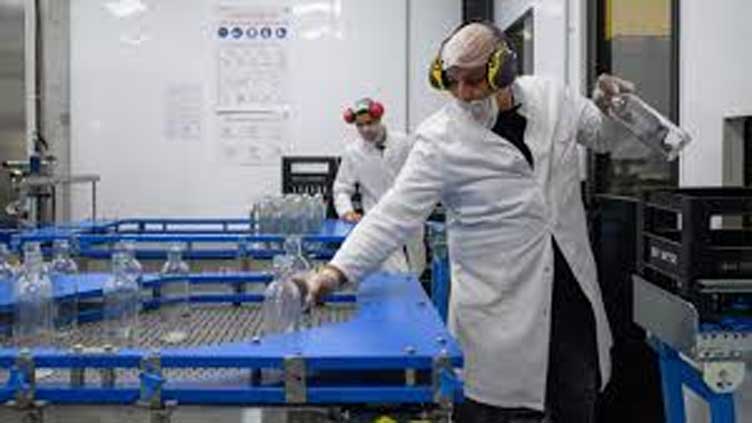Swiss company to bottle Paris water for high-end hotels

Business
Swiss company to bottle Paris water for high-end hotels
(AFP) - A Swiss company has received permission from the Paris prefecture to bottle and market water from underground reservoirs beneath the city. Aiming to cater to Parisian hotels and palaces looking to reduce plastic use and support local consumption, the company is focused on sustainability.
Based in Lausanne, the company filters the city’s water and bottles it in glass in a 300m² warehouse in the 18th arrondissement. Already operating in other countries and Nice, they have invested 1 million euros in the Paris facility.
The water comes from the same underground sources as the city's tap water, but Jonathan McNicol, managing director of BE WTR France, says this water is more filtered.
"On our small scale, because there are far fewer litres, we can have filters that can have a longer contact time and we can remove PFAS, the few pesticide residues if there are any," he told FranceInfo.
BE WTR’s filtration system was first approved by the Agence régionale de santé (ARS) before gaining full authorisation in July.
“The idea is to innovate in water, to bring a silky-smooth taste, to ensure that we are local,” said Mike Heicker, founder and chairman of BE WTR.
Local opposition
However, not everyone is convinced. Mélisande Seyzériat, coordinator of Zero Waste Paris, believes there’s a simpler solution.
“I don’t know what is meant by ‘silky water’. I think it's something for people with a lot of money. We're talking about water from Paris, so we have it on tap,” she said.
The company argues that each glass bottle can be reused up to 200 times, adding to the environmental benefits.
BE WTR is keen to place its small bottling plants in city centres, as seen in Lausanne, or within large establishments, such as their facility in a three-hotel resort in Dubai. This helps reduce transportation distances for deliveries.
The Paris site aims to produce up to six million bottles annually, with the primary market being hotels and palaces. While the price is not yet finalised, McNicol said it would be comparable to that of mineral water.


